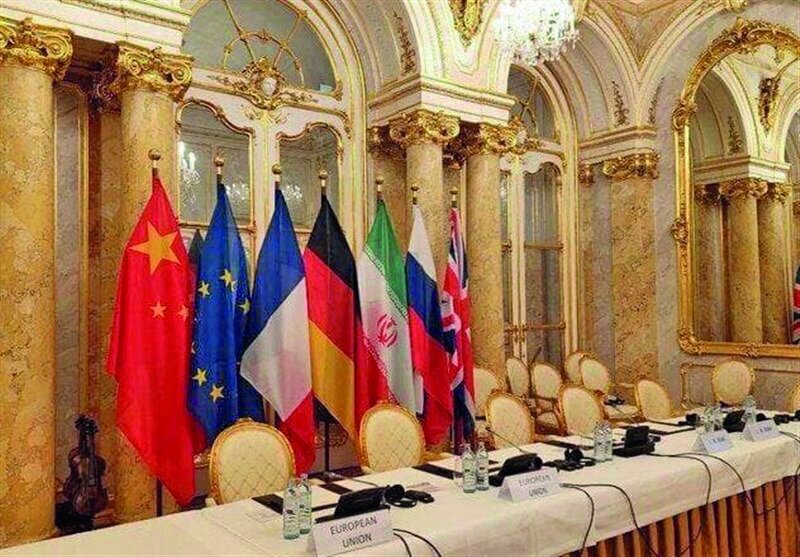Russia’s demand for guarantees highlights U.S. irresponsibility

TEHRAN – Talks in Vienna over reviving the 2015 Iran nuclear deal have taken a new turn after Russia demanded guarantees from the United States.
The new Russian demand comes as the Vienna talks are inching toward a conclusion day after which the reimplementation of the resuscitated nuclear deal, formally called the Joint Comprehensive Plan of Action (JCPOA), will begin.
The draft of the possible agreement has been prepared and only a few things remain unresolved. Some of Iran’s demands, particularly those pertaining to verification measures and guarantees have been incorporated into the draft agreement.
The agreement will be implemented in six phases, with Iran having weeks to verify the lifting of U.S. sanctions without having to implement its commitments under the revived deal.
As regards the guarantees, Iran’s demands to include “inherent guarantees” in the deal were taken into account. This kind of guarantee refers to Iran’s ability to keep some materials and nuclear machinery inside the country. Under the JCPOA of 2015, Iran is not allowed to use or develop the highly advanced IR6 centrifuges for a period of 13 years after the implementation of the JCPOA.
But after the U.S. withdrew from the nuclear deal in May 2018, Iran gradually developed its centrifuges and used even more advanced ones such as IR9 and IR8 machines.
Under the revived JCPOA, Iran will keep its advanced centrifuges and nuclear materials inside the country as a form of inherent guarantee to make sure that its nuclear program is fully reversible if the U.S. reneged on its commitments again. Iran will also be authorized to continue its nuclear R&D activities. All in all, Iran will retain the ability to quickly resume 60 percent uranium enrichment as a way to prevent the U.S. from leaving the JCPOA again, according to Mostafa Khosh-cheshm, an Iranian analyst.
This kind of guarantee was innovated to overcome the American negotiating team’s continued insistence that the U.S. is unable to provide robust, legal guarantees that it won’t quit the JCPOA again. In other words, the guarantees in question have little to do with American innovation as much as it pertains to the proactive Iranian approach.
The guarantees incorporated into the JCPOA shed light on the guarantees now the Russians are demanding. Iran persistently demanded legal guarantees but when the U.S. showed unreasonable intransigence, Iran innovatively presented its inherent guarantees. Whether Russia would be able to follow in Iran’s footsteps in regards to guarantees remains to be seen.
Russian Foreign Minister Sergei Lavrov said the sanctions the West imposed on Russia over Ukraine will create a problem for the Iran nuclear deal and demanded written guarantees from the U.S. that these sanctions won’t impede Russia-Iran cooperation in case the JCPOA is revived.
“We want an answer - a very clear answer - we need a guarantee that these sanctions will not in any way touch the regime of trade-economic and investment relations which is laid down in the Joint Comprehensive Plan of Action,” the Russian foreign minister said.
He added, “We have asked for a written guarantee ... that the current process triggered by the United States does not in any way damage our right to free and full trade, economic and investment cooperation and military-technical cooperation with the Islamic Republic.”
A senior Iranian lawmaker has said that the Russian demand for guarantees from the U.S. is a “bilateral” issue between Moscow and Washington.
The lawmaker, Abolfazl Amouei, who is a member of the Iranian parliament’s National Security and Foreign Policy, said the Russian demand stems from wider concerns in the world over the U.S. compliance with its commitments.
In remarks to Tasnim News, Amouei said Iran hasn’t put forward a Russian-styled demand on guarantees and “in fact, this issue should be settled between Russia and the United States because it has to do with bilateral issues currently happening between the two countries in Ukraine.”
“Iran has done its utmost to distance the Vienna talks from the ongoing relations in Eurasia, Eastern Europe and the developments in Ukraine. For this reason, Americans must be able to convince all parties of their intentions,” he added.
In a sense, the onus is now on the U.S. to convince other partners to the Vienna talks to proceed with what is taking shape in the negotiations.
According to Amouei, the U.S. track record in not complying with its commitments has aroused concerns in countries beyond Iran. “The fact is that today the concern about the implementation of U.S. commitments is a concern beyond Iran. And various countries are concerned about whether the Americans will live up to their obligations under the agreement if the JCPOA is revived.”
Leave a Comment